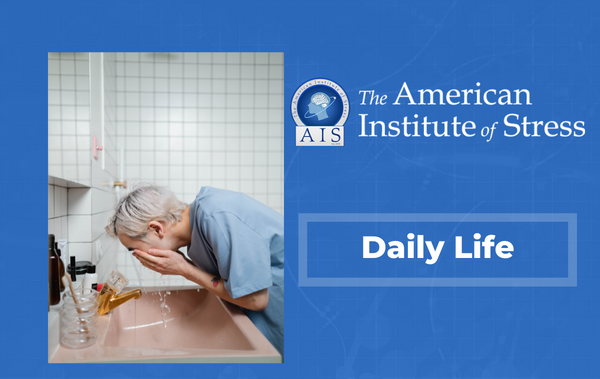Washing yourself can attenuate the psychological consequences of stressful events, according to new research published in Social Psychological and Personality Science. The new findings provide some of the first scientific evidence that cleaning oneself is related to reductions in anxiety.
But why were scientists interested in examining the link between self-cleaning and stress? “Blame it on my probably subclinical obsessive-compulsive personality,” explained study author Spike W. S. Lee, an associate professor of management and psychology at the University of Toronto and director of the Mind and Body Lab.
“I’ve always been fascinated by the psychology of cleaning behavior. Why do purification rituals exist across religions? Why do stressful situations elicit cleaning behavior in a number of non-human species? Why do we have expressions like ‘wipe the slate clean?’”
Lee and his research team recruited 1,150 adults via Prolific and had them watch a brief video clip of a terrified woman standing at the edge of a bungee jump station. The video had previously been shown to induce anxiety, tension, and uneasiness in viewers. The participants were then randomly assigned to watch a video showing how to properly wash one’s hands, a video on how to draw a circle, or a video on how to peel an egg.
Those who watched the handwashing video tended to subsequently report lower levels of anxiety compared to those who watched the two other videos. The researchers then replicated the findings in a second experiment that included 1,377 individuals recruited from Amazon’s Mechanical Turk crowdsourcing platform.
But the researchers noted that the handwashing video involved the element of self-touch. “Because touch is soothing and calming, what appeared to be cleaning effects might have been touch effects instead,” they noted. To account for this potential confound, the researchers conducted a third experiment with 465 participants in which the three videos were replaced with mental imagery tasks.
After watching the anxiety-inducing video, the participants were randomly assigned to either “imagine you are getting your arms, face, neck, and hair thoroughly cleansed with water,” “imagine you are touching your arms, face, neck, and hair to thoroughly feel yourself,” or were not instructed to imagine anything.
In line with their hypothesis, Lee and his colleagues found that anxiety levels tended to be lower among those who imagined cleaning compared to those who imagined touch and those in the control condition.
“When we engage in cleaning behavior, it involves separating residues from our body (e.g., washing dirt off your hands),” Lee told PsyPost. “This basic, physical experience of separating residues from our body can trigger a more psychological form of separation, namely, separating the residual influence of past experiences from the present (e.g., wiping the slate clean). If the past experiences were stressful, then psychologically separating them from your present would reduce your stress.”
In their fourth and final experiment, the researchers also found physiological evidence to support their hypothesis. In the experiment, 74 students at a large university in Canada went through two rounds of an anxiety-inducing task while their cardiovascular activity was recorded.
The participants were told that the researchers were interested in understanding more about physiological responses to intellectual and academic tasks. They were instructed to give a 5-minute speech explaining why they were qualified to be the team lead in a consulting firm. They spoke in front of two judges in white lab coats who “looked stern the whole time, with blank stares, no smiling, and no indication of approval.”
The participants were then randomly assigned to either actually use or simply examine an antiseptic wipe. They completed a 10-minute filler task, then either used or simply examined sanitizing gel. Afterward, participants delivered a second speech, which was designed to be slightly less stressful than the first. The judges appeared to have a more positive mood and provided some affirmative feedback.
The findings from the final experiment indicated that “cleaning behavior results in a more adaptive profile of cardiovascular reactivity,” the researchers said.
However, Lee noted that the study — like all research — includes some caveats. “While we demonstrated the phenomenon in samples with a wide age range, they are drawn from Western populations only,” he explained. “Whether the phenomenon generalizes to other cultures remains to be seen. Also, our findings invite future research to investigate what other protective effects may result from cleaning behavior in daily life.”
The study, “Actual Cleaning and Simulated Cleaning Attenuate Psychological and Physiological Effects of Stressful Events“, was authored by Spike W. S. Lee, Kobe Millet, Amir Grinstein, Koen H. Pauwels, Phillip R. Johnston, Alexandra E. Volkov, and Arianne J. van der Wal.
Photo Photo by Ron Lach : https://www.pexels.com/photo/man-in-blue-t-shirt-washing-his-face-8159650/

